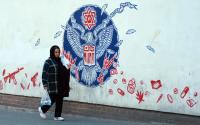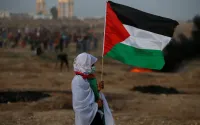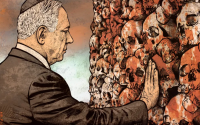The grim succession of news from Iraq makes the belief that security would improve, however slowly, after the handover to an interim administration, seem more than ever misplaced. Casualties inflicted on US-led foreign forces have fallen from the very high levels of recent months, but the shadowy forces of insurgency are able to shift their targets at will.
Sunday's attacks on Christian churches appear carefully coordinated, picking on a minority which had so far been untouched, and again underline the terrorists' freedom of manoeuvre.
Progress or its reverse is better judged from the seat of a truck driver's cab on the way into Baghdad than from No 10 Downing Street.
Foreign truck drivers, lured by relatively large cash payments, are now travelling only by day even when they are given armed escorts.
Yesterday the Turkish truckers' association, hoping to secure the release of two kidnapped members, announced that it would no longer transport goods bound for US forces in Iraq.
Drivers have been kidnapped bringing in supplies from Kuwait and Jordan regardless of the destination of their loads.
Some 200 Jordanian drivers have been killed since the war last year either by US fire or armed Iraqis and last week the truck owners' association in Amman complained that such assaults are still taking place regularly.
As the latest travel warning from the US Department of State puts it, since the transfer of authority on June 28 all vehicular travel in Iraq remains "extremely dangerous.
Attacks occur throughout the day, but travel at night is exceptionally dangerous."
Many incidents of violence are barely reported now, but only partly because of communication difficulties.
While British ministers go on vacation and the US press focuses on the election, news from Iraq has receded subtly from the headlines, including the unannounced visit of US secretary of state Colin Powell to Baghdad last week, where he warned of "challenges in the weeks ahead", and the postponement of the planned national conference to select an interim assembly.
The existence of an Iraqi government, however defective, in control of a "sovereign state", also provides - as it was intended to - some insulation.
Yet it is vital to ask: what sort of government and what sort of state? Afghanistan today, where the Kabul government also cannot provide security outside the capital, is indicative.
The invasion and overthrow of a "rogue state" only leads to a fractured state: for those doomed to live in it there has to be a better way.
http://www.guardian.co.uk/print/0,3858,4984393-103550,00.html






